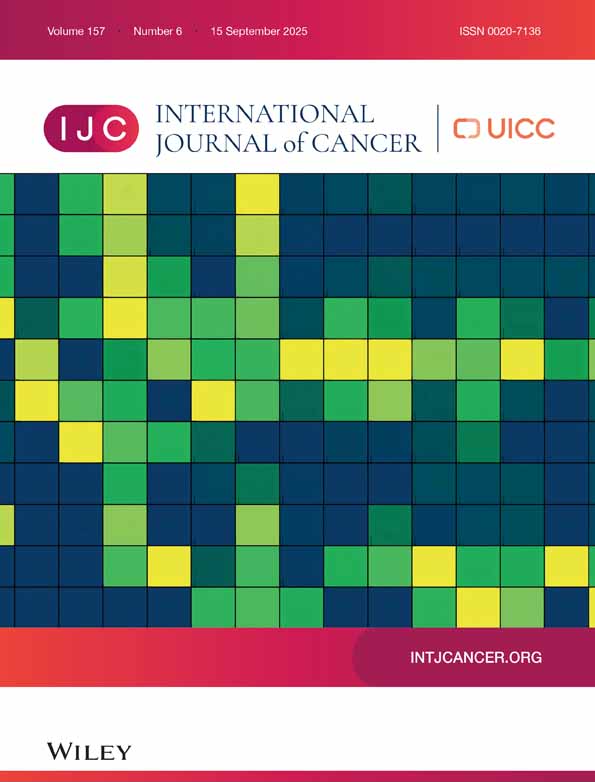Somatically acquired genetic alterations in flat colorectal neoplasias
Abstract
Somatically acquired mutations in several genes have been reported as playing an important role during colorectal tumorigenesis. Two alternative groups of carcinomas, termed LOH+ and RER+, have been defined on the basis of their genetic anomalies, a biallelic inactivation of the APC or the TGF-βRII genes, occurring as an alternative, in LOH+ or RER+ tumors. It is a generally accepted hypothesis that most of colorectal cancers (CRC) develop from a pre-existing adenomatous polyp. Such benign lesions are usually exophytic polyps, a small proportion of adenomas having been described as flat lesions. The latter histological category has thus been proposed to bear specific genetic alterations. In order to examine this hypothesis, we have characterized a series of 44 flat colorectal neoplasias for their RER status and for somatic APC, KRAS and TGF-βRII genes mutations. Flat colorectal neoplasias were found to be of the RER+ subtype in 22% of cases, all of them exhibiting a TGF-βRII mutation. A mutation of the APC and KRAS genes has been found in 42% and 4% of tumors, respectively, none of these tumors being of the RER+ subtype. With the exception of a low KRAS mutation rate, flat adenomas appear to follow tumorigenesis pathways very similar to those identified in exophytic adenomas and carcinomas. Int. J. Cancer 77:366–369, 1998. © 1998 Wiley-Liss, Inc.




